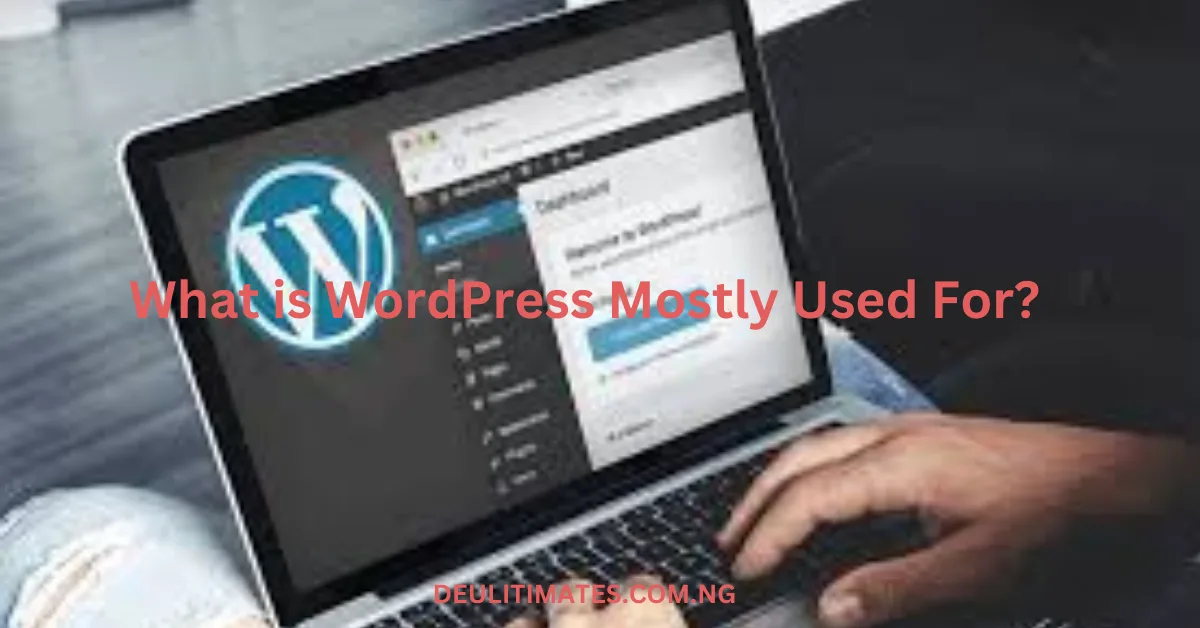What is WordPress Mostly Used For?
WordPress is the world’s most popular content management system (CMS), powering over 43% of all websites on the internet. Known for its flexibility and ease of use, WordPress caters to a wide range of users, from beginners to seasoned developers. But what is WordPress mostly used for? Let’s dive into the primary purposes and applications of this versatile platform.
1. Blogging and Content Creation
WordPress initially started as a blogging platform, and it remains one of its core strengths today. It provides:
- User-Friendly Interface: A simple editor that allows users to publish and manage content effortlessly.
- Customization Options: Numerous themes and plugins to tailor the look and functionality of blogs.
- Built-In Tools: Categories, tags, and scheduling features to organize and optimize posts.
Whether you’re a personal blogger or a content marketer, WordPress offers the tools to create and share engaging content. For more insights, explore our Beginner’s Guide to WordPress Blogging.
2. Business Websites
WordPress is widely used for creating professional websites for businesses of all sizes. Key reasons include:
- Cost-Effectiveness: Free themes and plugins make it affordable.
- SEO-Friendliness: Features like Yoast SEO and Rank Math help improve visibility on search engines.
- Responsive Designs: Ensure websites look great on all devices.
From small startups to large corporations, businesses use WordPress to establish their online presence. For example, check out our case study on XYZ Corporation’s successful WordPress integration, which highlights how they leveraged the platform to boost their online visibility and customer engagement.
3. E-Commerce Websites
With plugins like WooCommerce, WordPress has become a favorite for building online stores. It allows users to:
- Sell Products and Services: List items, manage inventory, and process payments.
- Customize Storefronts: Choose from a variety of templates and layouts.
- Integrate Payment Gateways: Support for PayPal, Stripe, and other payment options.
Whether selling physical goods or digital downloads, WordPress makes e-commerce accessible. Learn how to set up your WooCommerce store.
4. Portfolio Websites
For creatives like designers, photographers, and artists, WordPress is ideal for showcasing portfolios. Features include:
- Elegant Themes: Specialized designs for displaying visual content.
- Image Galleries: Built-in or plugin-enhanced galleries.
- Custom Post Types: Options to categorize and present projects effectively.
A well-designed WordPress portfolio helps professionals stand out and attract clients.
5. Educational Websites
WordPress is commonly used to create educational platforms, including:
- Online Courses: Using plugins like LearnDash or LifterLMS to manage courses.
- Membership Sites: Restrict content to members or subscribers.
- School Websites: Provide information, schedules, and resources.
This flexibility makes WordPress a top choice for educators and institutions. For more insights, explore our comprehensive guide to creating educational websites with WordPress.
6. Community Forums and Membership Sites
With plugins like BuddyPress and bbPress, WordPress can power:
- Online Communities: Social networking sites and forums.
- Membership Platforms: Restrict access to exclusive content.
- Discussion Boards: Facilitate interaction among users.
WordPress enables easy management of user registrations and interactions.
7. Nonprofit Websites
Nonprofit organizations use WordPress to:
- Share Their Mission: Inform visitors about their cause.
- Accept Donations: Integrate donation plugins for secure payments.
- Engage Volunteers: Post events and opportunities for involvement.
Its affordability and versatility make WordPress ideal for nonprofits.
FAQs
1. What are the main advantages of using WordPress? WordPress offers flexibility, a user-friendly interface, extensive customization options, and robust SEO capabilities.
2. Is WordPress suitable for beginners? Yes, WordPress is beginner-friendly, with an intuitive dashboard and extensive documentation.
3. Can I use WordPress for free? Yes, WordPress.org is free to use, though you may incur costs for hosting, premium themes, and plugins.
4. How secure is a WordPress website? WordPress is secure when regularly updated, with proper hosting and security plugins like Wordfence or Sucuri.
5. Can I build an online store with WordPress? Absolutely! WordPress with WooCommerce is a powerful combination for creating e-commerce websites.
Conclusion
So, what is WordPress mostly used for? From blogging and e-commerce to education and community building, WordPress is a go-to solution for almost any type of website. Its user-friendly nature, vast customization options, and scalability make it a top choice for millions of users worldwide.
Ready to start your WordPress journey? Explore our comprehensive WordPress tutorials to learn more!



